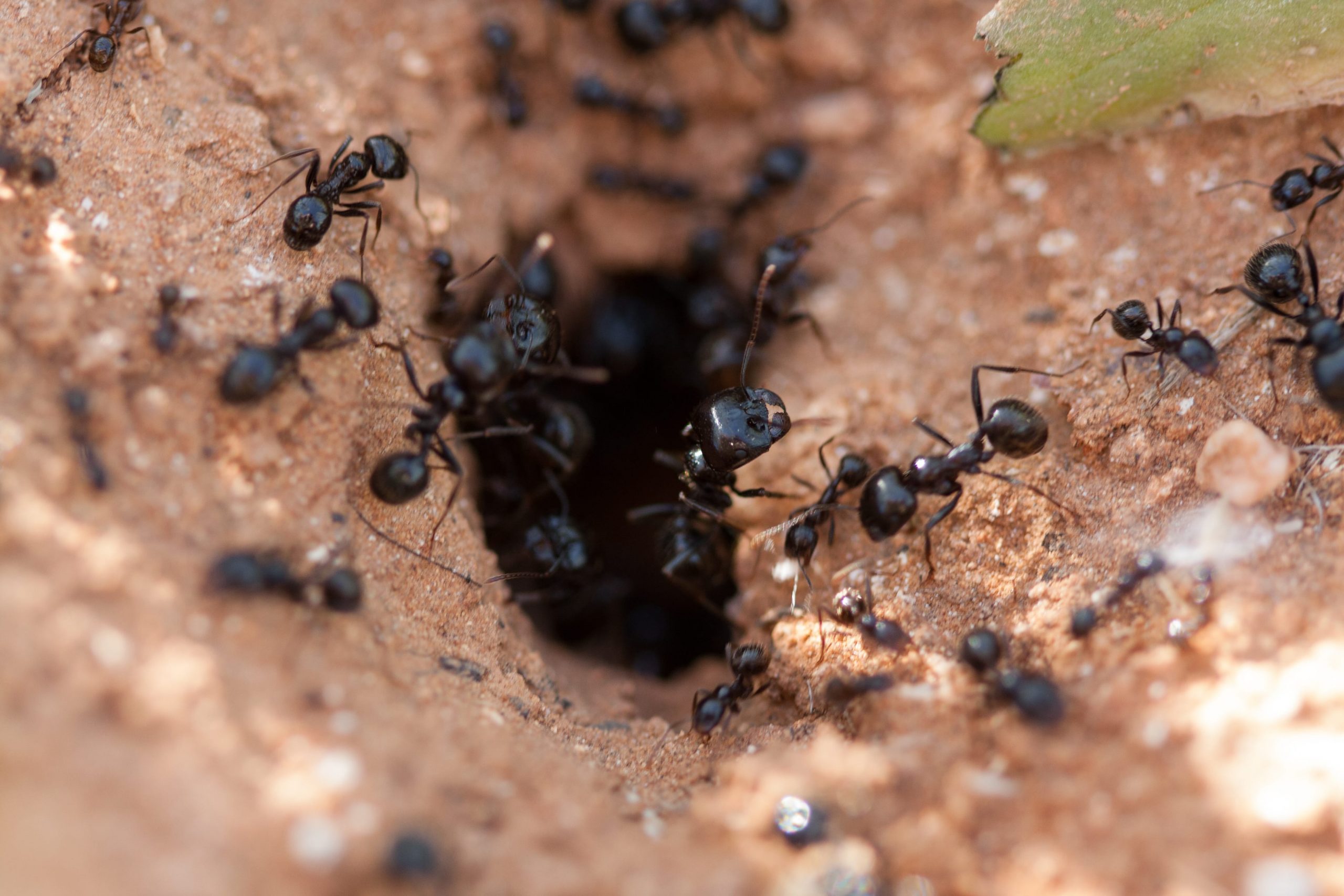Ants can be an annoying pest to deal with if they’re formed a colony on your lawn. They’re small, hardy, and grow in number quite quickly.
While using insecticides might seem like the best way of killing ants in your lawn, there are some issues with doing this. Chemical pest control can kill off other insects that are beneficial for your lawn, and can cause unwanted environmental damage through water run-off. It’s best to avoid using pesticides on grass your children and pets play on.
In this guide, we’ll explain how to get rid of ants in your lawn, the eco-friendly, natural way.
But first, let’s look at some of the issues ant colonies can cause for your lawn.
Issues caused by lawn ant colonies
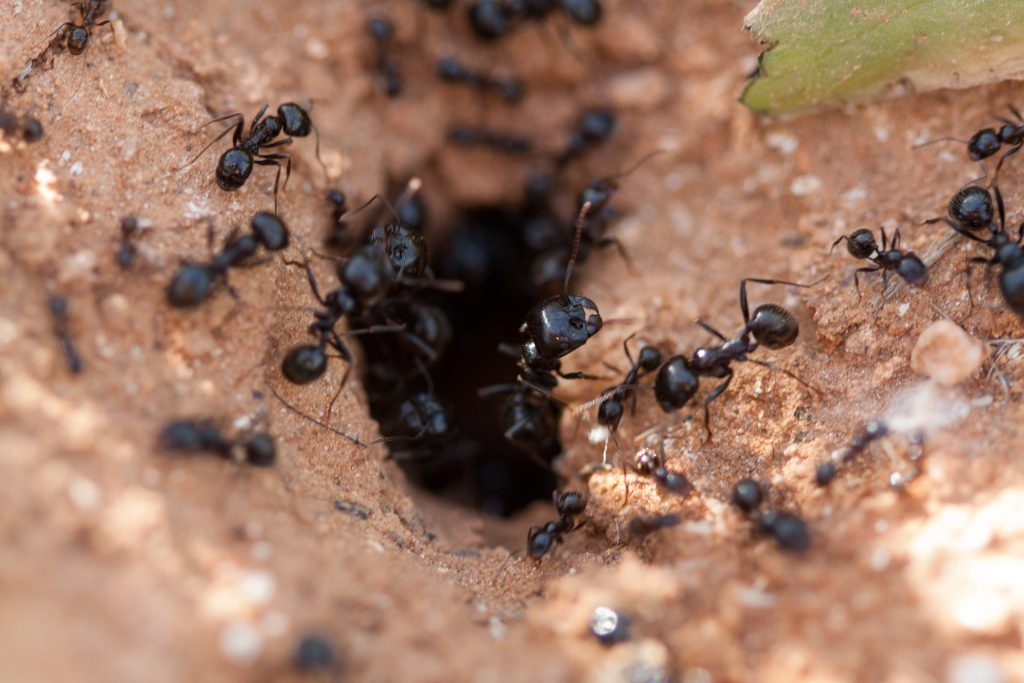
There are a number of problems caused by ant colonies making nests on your lawn.
- Ant hills are unsightly, and ruin the look of your lawn.
- Ant hills can be a tripping hazard if they get large enough.
- Ant hills can make it harder to mow your lawn.
- Some species of ants, such as red ants, can sting. Although they’re not dangerous to humans, ant stings can be quite painful, especially for children.
- Some species of ants will eat away at your vegetable garden. If you grow your own vegetables and notice they’re being nibbled, ants may be the cause although slugs or snails are much more likely culprit.
However, it is worth noting that ants are not a big problem for most lawns – you don’t need to kill the ants unless their numbers get out of hand. The most common type of ant in the UK, the black garden variety, does not sting, and will not harm your grass growth. In fact, their nests can help to aerate your lawn, and ants often eat the larvae of other types of insects that will cause more damage to your grass.
You will need to weigh up the issues caused by the ants, such as how many ant hills you’re getting, to decide if exterminating them is worth the effort.
How to get rid of ants in grass naturally
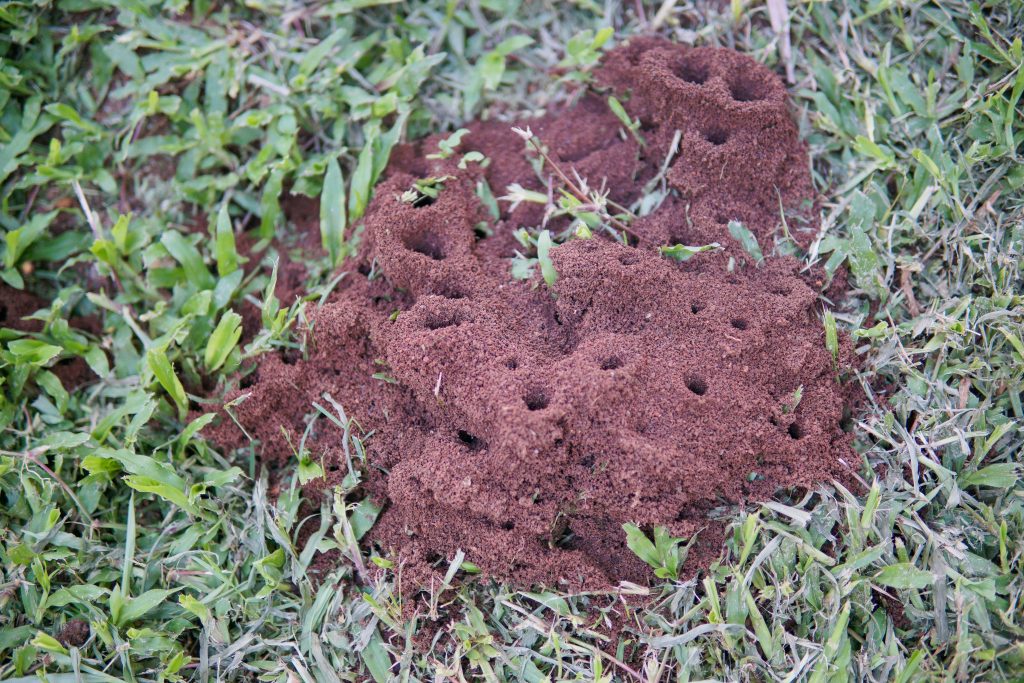
There are a number of non-toxic ways to get rid of or kill ants in your lawn, without resorting to ant poison.
Here are some methods to get rid of ants in grass naturally.
1. Soapy water
You can use a 3% soap and water mixture to create a natural insecticide, using washing up liquid to make the solution. Put the soapy water inside a spray bottle, and target any ant nests and ant trails you can see. You can be quite liberal with the spray – soapy water won’t harm your grass, so you don’t have to worry about using too much.
Why it works: ants will die if exposed to water. Normally, their exoskeleton protects them against moisture in the soil. However, the soap breaks down this layer of protection, allowing the water inside.
2. Boiling water
You can also try to pour boiling water into each individual ant hill you see, as a more simple solution. However, you need to be careful not to use too much boiling water, and you must avoid pouring it onto the grass itself. Pouring hot water onto your lawn can scald it, causing the grass to turn brown, and leaving bald patches.
Why it works: the water will flow down the tunnels in the ant nest, reaching the entire colony. The extreme heat from the boiling water will then kill the ants.
3. Diatomaceous earth
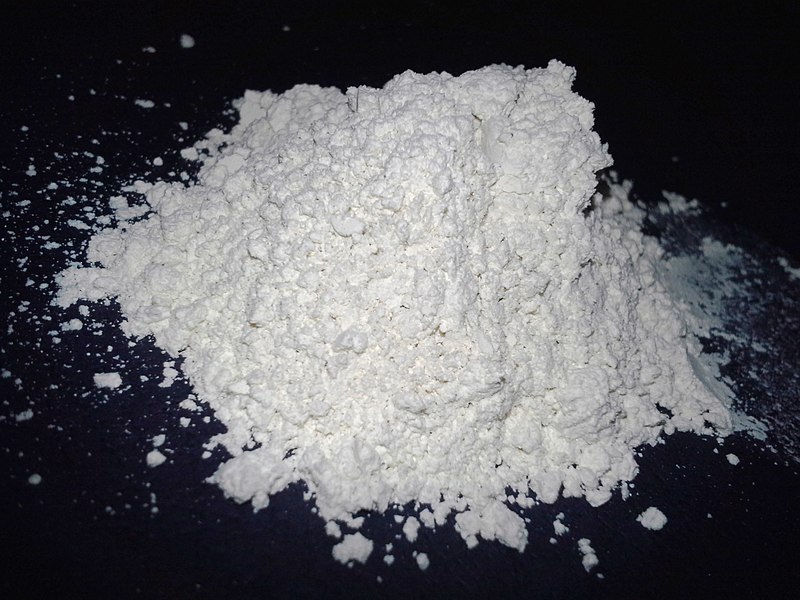
Diatomaceous earth is a type of fine, sedimentary soil that ants don’t like, that is perfectly safe to use in your garden. In fact, it has a lot of nutrients that are beneficial for your lawn.
You want to buy what’s known as food-grade diatomaceous earth, which is safe for human consumption – meaning it’s safe for your kids as well. You don’t need to buy a huge bag – you only want to spread a small amount in and around any ant hill you see.
Why it works: diatomaceous earth is a well-known natural insecticide. It works in two ways: firstly, it’s sharp enough for ants that they can actually be killed just by walking on it. The particles can penetrate the ants’ exoskeleton, eventually killing them. The substance can also impede ants’ movement to the extent that they get dehydrated and die. However, it can be quite slow to act. Using soapy water will likely be a quicker way of killing ants on your lawn.
Methods to avoid
There are many other ways to kill ants discussed on the internet, many of which can cause a lot of harm to your lawn.
- White vinegar – the acidity in vinegar will affect the pH in your topsoil, and make your lawn look worse.
- Salt will also kill plants, including your grass, if used in a large enough quantity.
- Chilli powder is supposed to kill ants, but it’s not great for your lawn, and will make your pets sick if they decide to taste it.
How to prevent ants from reappearing on your lawn
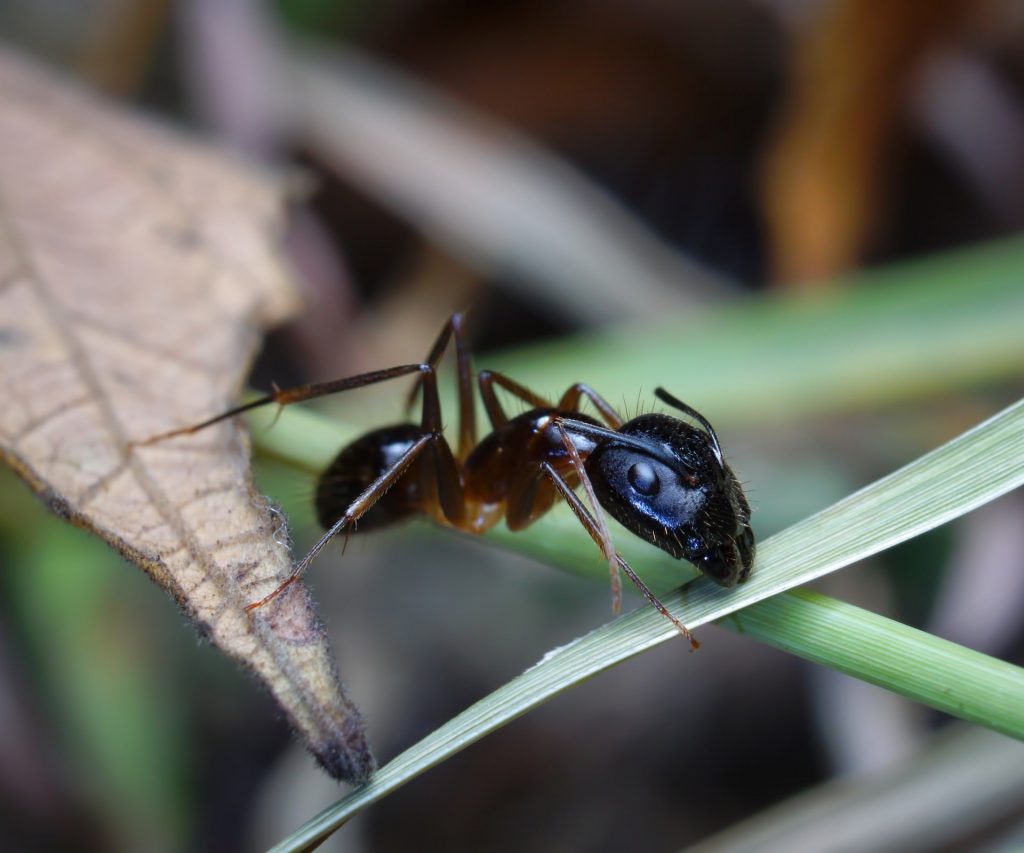
Once you’ve killed off any existing ant colonies, you’ll want to take steps to ensure that they don’t reappear. Otherwise, you will be dealing with the exact same problem again in the next few months.
Ants thrive when your lawn is unhealthy. The more sparse your grass, the more room there is in the soil for ants to build their nests. If there is plenty of grass, and a small layer of thatch, this makes it difficult for ants to build their mounds.
Therefore, to prevent ant colonies from taking over your lawn, you need to take care of your lawn. This means taking steps such as:
- Feeding your lawn with compost, for example by mulching your grass clippings.
- Overseeding bare patches to ensure even grass growth, plugging up holes where ants can build nests.
- Mowing your lawn regularly, at a higher cutting height.
- Scarifying your lawn to prevent thatch overgrowth.
- Watering your grass regularly if it isn’t getting enough rain.
- Ensuring good drainage to prevent waterlogging.
You should also work to eliminate any potential ant food sources from your lawn, to avoid attracting them back to your garden.
- Keep your compost bin well-sealed. If you notice ant trails on or near it, quickly deter them with your choice of natural insecticide spray.
- The same goes for your vegetable patch. If you see ants nearby, or notice small bites taken out of the leaves, you will want to deter them as quickly as possible.
- Avoid leaving scraps of food on the lawn for birds or squirrels to eat. These animals won’t pick up all the food every time, leaving crumbs that ants love to feast on.

I’m Josh, and I’m the head writer at Lawn Care Pro.
I love everything lawns, but I’m a bit of a lawn mower nerd. I spend a lot of my free time tinkering with mowers, and planning my mowing schedule for the next few weeks.
I’m also into cars, which comes in very helpful when servicing a mower engine!

